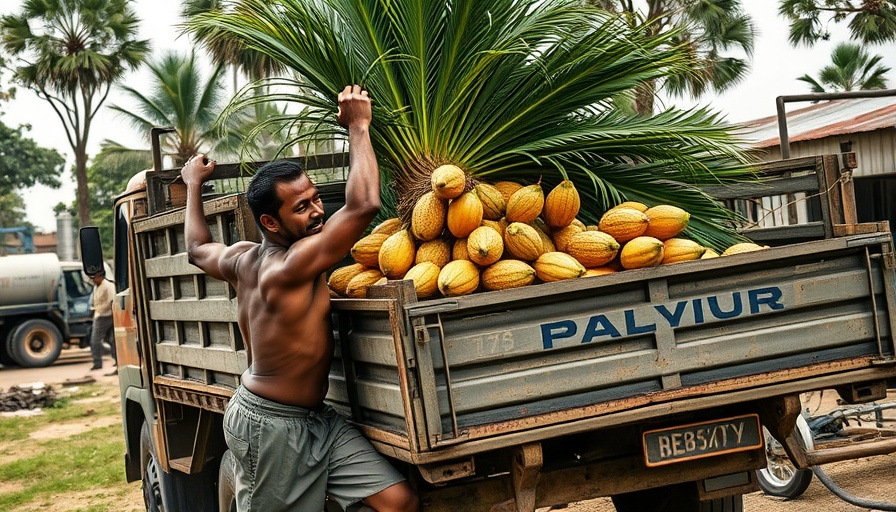
Wilmar's Significant Financial Move Amid Corruption Allegations
Wilmar International, a major player in the agrifood sector, has recently handed over a staggering 11.9 trillion Indonesian rupiah (approximately $729 million) to Indonesia as a "security deposit" in response to ongoing allegations of corruption related to palm oil export permits. This amount constitutes almost two-thirds of Wilmar's net income for the previous year, raising eyebrows in the business community. After the announcement, Wilmar's shares plummeted by 3%, the lowest they have fallen in a decade.
The allegations stem from claims that Wilmar bribed officials to secure these permits during a significant national cooking oil shortage in Indonesia. Although the company was acquitted by an Indonesian court in March, the ruling has been marred by controversy, particularly after the judges involved were arrested on graft charges shortly after the acquittal. This situation illustrates the high-stakes environment of the palm oil industry, which is crucial for Indonesia, as it supplies approximately 60% of the world's palm oil.
Broader Implications for the Palm Oil Industry
Indonesia's Attorney General's Office has indicated that corruption related to these export permits resulted in state losses totaling around 12.3 trillion rupiah ($755 million). Wilmar's situation highlights the complex interplay between corporate practices, government regulation, and market dynamics. The company has stated that its actions complied with regulations, and the money paid will be returned if the Supreme Court upholds its acquittal.
This unprecedented financial action is not just about a single company; it resonates with broader themes of corporate governance and corporate social responsibility. As the world moves toward more sustainable business practices, effective oversight and transparency in markets like palm oil, which has a substantial environmental impact, are becoming increasingly vital.
The Future of Palm Oil and Corporate Ethics
Looking ahead, the palm oil industry may face stricter regulations and heightened scrutiny. Companies operating in this space must navigate not only the risks tied to corruption allegations but also the evolving expectations surrounding sustainability and ethical practices. As companies like Wilmar strive to restore their reputations, building trust through transparency will be essential for long-term success.
Stakeholders in the agrifood sector—which includes farmers, suppliers, and consumers—must all stay informed about these developments as they may lead to shifts in market strategies and partnerships. The outcome of Wilmar's legal battles and how the company manages its corporate governance could set a precedent for others in the industry.
Conclusion: The Need for Ethical Business Practices
As business professionals, it's crucial to monitor how such cases unfold and what they may mean for broader business trends and regulations within the agricultural industry. Learning from the challenges faced by Wilmar may inspire new approaches in corporate governance and ethical practices in agribusiness.
 Add Row
Add Row  Add
Add 



Write A Comment